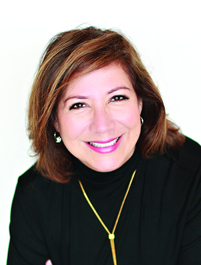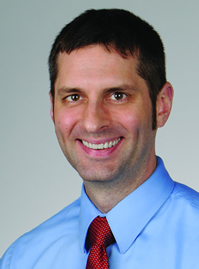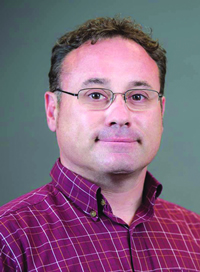Technology is turning rheumatology into a smart field. Like smart cars, smart homes and smart clothing, smart rheumatology is all about using technology to improve life for students, for patients, and for clinicians. The TechMed sub-track includes Monday sessions from both ACR and ARHP that focus on the rapidly advancing technology in rheumatology.
Social media has transformed the practice of rheumatology. Where patients once asked their rheumatologist, they now ask Google or Siri. And where they once talked about their disease in the office, they now talk online.

“Rheumatology professionals need to be online because that is where their patients are,” said LeAnna J. Carey, MBA, Global Market Strategy Lead for Symplur, a healthcare social media analytics company. “Rheumatologists need to be talking to each other and to their patients. And they need to be listening to what their patients are saying. The tools are available.”
Carey will kick off the Digital Scholar Training Series in room 150A from 8:30 – 10:00am Monday with a look at What Rheumatologists Can Learn from Patients’ Online Conversation? The program explores the concept of social listening using Symplur Signals to connect the dots between patients’ online conversations on Twitter and Facebook.
“Social listening is the process of monitoring digital conversations to understand what patients are asking and saying and communicating about healthcare,” she said. “Social listening gives insights into real conversations and lets you leverage tools that will help our practice survive and thrive.”
On the student side, medical education moves toward the same flipped classroom concept that has already transformed other professional fields. Traditional medical education is typically a one-way process, with one professor lecturing many students. Didactic sessions are familiar, but that kind of passive learning is also highly ineffective. Active learning is much more effective and efficient.

“We are going to focus on modern, evidence-based, active teaching strategies that optimize learning in different settings,” said Jeremy Richards, MD, Assistant Professor of Pulmonary and Critical Care at the Medical University of South Carolina. “From the classroom to the bedside to the clinic, there are different strategies that have a fair amount of evidence behind them.”
Dr. Richards will open a clinical practice symposium on Hot Topics in Teaching Techniques: Flipped Classroom, Technology and Reflection from 12:30 – 2:00 pm Monday in room 143A. “Flipped classroom” is an umbrella concept for multiple teaching strategies, but all focus on independent learning and study of concepts before class, which allows the instructor to focus on problem solving and application of knowledge.
“There is ample evidence that active learning techniques, flipping the classroom, can improve learners’ performance and improve conceptual understanding,” he said. “We will explore some of the different flavors of flipped classrooms with some specificity.”
Rheumatology patients are getting smarter, too, and using technology to help improve their health and quality of life despite the physical limitations imposed by their diseases. Smart technology can ease some of the daily challenges presented by the typical home or office to RA patients battling physical disability.

“The home and work environments can be adapted to physical limitations in any number of ways,” said Victor Paquet, ScD, Associate Professor of Industrial and Systems Engineering at The University of Buffalo, State University of New York. “Something as simple as turning lights on or off can be difficult to impossible if you have limited mobility or limited use of your hands. Sensors can turn your environment into a smart environment that knows where you are, what lights to turn on, where the temperature needs adjusting or window coverings moved. A lot of those kinds of hand tasks can be done automatically.”
Dr. Paquet will discuss the current crop of adaptive devices and technologies during the ARHP session Smart Office, Smart Home: Adaptations for Rheumatic Disease on Monday from 4:30 – 5:30 pm in room 209A. The most important step in adapting the home or work environment is simply realizing that it can be done practically and affordably.
“We are going to be talking about ideas and concepts that go outside the box for rheumatology professionals,” he said. “Instead of focusing on clinical or formal rehabilitation environments, we are going to focus on ideas about how people can use technologies to become more functional and independent. This hour is all about concepts and devices that can empower your patients to be happier, healthier, and more functional at home.”
DIGITAL SCHOLARTRAINING SERIES
CLINICAL SCIENCE TRACK
What Rheumatologists Can Learn from Patients’ Online Conversation?
8:30 – 10:00 am Monday • Room 150A
CLINICAL PRACTICE TRACK
Hot Topics in Teaching Techniques: Flipped Classroom, Technology and Reflection
12:30 – 2:00 pm Monday • Room 143A
CLINICAL SCIENCE TRACK
Smart Office, Smart Home: Adaptations for Rheumatic Disease
4:30 – 5:30 pm Monday • Room 209A


